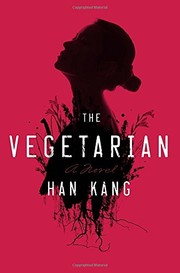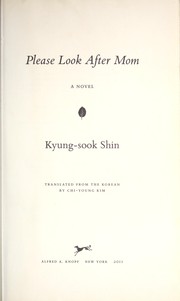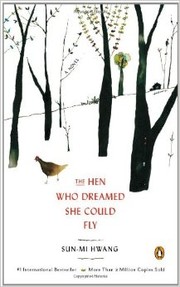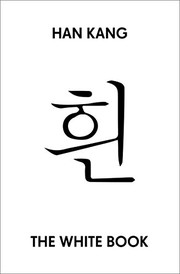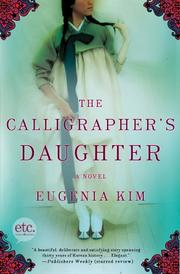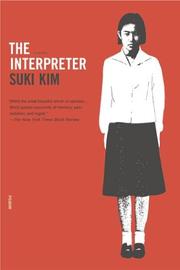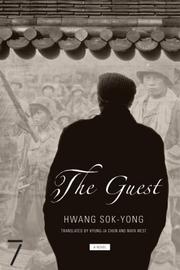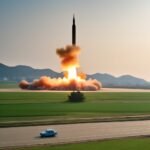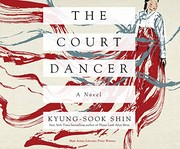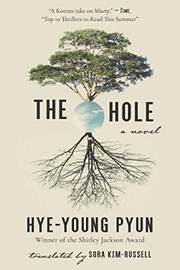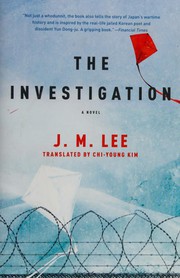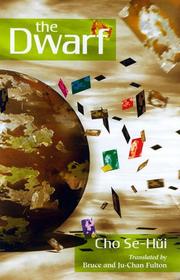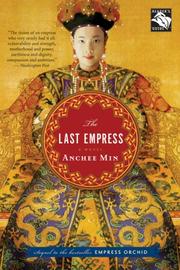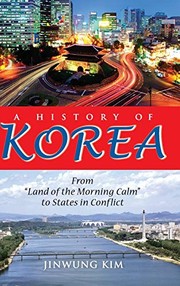If you’re eager to dive into the rich tapestry of Korean culture, there’s no better way to do so than through the pages of a book on Korean culture. Whether you’re interested in Korean history, art, cuisine, or traditional customs, there’s a wealth of literature available that can offer you a deep understanding of this fascinating culture. In this article, we’ll explore the 20 best books about Korean culture that will transport you to the heart of Korea and provide you with an enriching and immersive reading experience. Get ready to expand your knowledge and appreciation of Korean culture through these captivating reads.
Contents
- 1 20 Best Korean Culture Books
- 2 Pachinko
- 3 The Vegetarian
- 4 The Birth of Korean Cool
- 5 Please Look After Mom
- 6 The Hen Who Dreamed She Could Fly
- 7 The White Book
- 8 The Calligrapher’s Daughter
- 9 The Island of Sea Women
- 10 The Interpreter
- 11 The Guest
- 12 The Accusation
- 13 The Good Son
- 14 The Court Dancer
- 15 The Hole
- 16 The Impossible Fairy Tale
- 17 The Investigation
- 18 The Dwarf
- 19 The Last Empress
- 20 Korean Beauty Secrets: A Practical Guide to Cutting-Edge Skincare & Makeup
- 21 The History of Korea
- 22 Final Thoughts on Best Korean Culture Books
- 23
20 Best Korean Culture Books
Pachinko
by Min Jin Lee
Pachinko by Min Jin Lee is a captivating saga that delves deeply into the lives of a Korean family living in Japan. This multi-generational epic spans the early 20th century to the late 1980s, chronicling the struggles, triumphs, and enduring resilience of the family as they navigate discrimination, poverty, and the complexities of identity.
Through vivid storytelling, Lee paints a rich tapestry of the Korean diaspora in Japan, offering a poignant exploration of themes such as love, sacrifice, and the pursuit of belonging. The novel provides a compelling insight into the experiences of Koreans living in Japan, shedding light on the cultural, social, and economic challenges they face.
Pachinko is a profound and emotionally resonant book about Korean culture that immerses readers in the intricacies of family dynamics, societal prejudices, and the enduring spirit of the human heart. With its meticulously researched historical backdrop and deeply human characters, this novel is a must-read for anyone seeking a deeper understanding of the Korean experience in Japan.
The Vegetarian
by Han Kang
The Vegetarian by Han Kang is a captivating and thought-provoking novel that delves deep into the complexities of Korean culture. This multi-award-winning book takes readers on a journey through the life of Yeong-hye, a seemingly ordinary woman whose decision to become a vegetarian sets off a series of events that unravel her relationships and her own sense of self. Through her story, the novel explores the pressures of conformity, the expectations placed on women, and the tensions between modernity and tradition in Korean society.
With its lyrical prose and haunting imagery, The Vegetarian offers a poignant exploration of the human psyche and the impact of societal norms on individual freedom. Han Kang’s masterful storytelling and keen insight into the human condition make this book a powerful and unforgettable read for anyone interested in delving into the depths of Korean culture and society.
The Birth of Korean Cool
by Euny Hong
The Birth of Korean Cool by Euny Hong is a captivating exploration of the rise of Korean culture on the global stage. In this insightful book on Korean culture, Hong delves into the factors that have propelled Korea from a war-torn, impoverished nation to a powerhouse of pop culture, technology, and innovation. She unravels the phenomenon of the “Korean Wave,” which encompasses the worldwide popularity of K-pop, K-dramas, and Korean beauty products, and examines how these cultural exports have captured the imagination of a global audience.
Through meticulous research and personal anecdotes, Hong provides a fascinating glimpse into the intricacies of Korean culture and its impact on the world. She also offers a thought-provoking analysis of the societal and historical forces that have shaped Korea’s rapid transformation and influenced its modern identity. Whether you’re a K-pop enthusiast, a fan of Korean cinema, or simply curious about the cultural powerhouse that is Korea, this Korean culture book is a must-read for anyone seeking to understand the origins and influence of the Korean Wave.
Please Look After Mom
by Kyung-Sook Shin
Discover a heart-wrenching exploration of family, loss, and the complexities of Korean culture in Kyung-Sook Shin’s novel, Please Look After Mom. This deeply moving story follows the search for a mother who goes missing in a busy Seoul train station. As her family frantically looks for her, they come to realize how little they truly knew about her and the sacrifices she made for them.
Shin’s poignant and beautifully written narrative delves into the themes of identity, sacrifice, and the role of women in Korean society. Through the perspectives of the mother and her family, the novel offers a powerful portrayal of the traditional and modern aspects of Korean culture, providing readers with a profound insight into the complexities of familial relationships and the societal expectations placed on women.
With its emotional depth and thought-provoking exploration of Korean culture, Please Look After Mom is a must-read for anyone interested in delving into the intricacies of family dynamics and the rich tapestry of Korean society.
The Hen Who Dreamed She Could Fly
by Sun-mi Hwang
The Hen Who Dreamed She Could Fly is a heartwarming tale that delves into the depths of the human experience through the eyes of a barnyard hen. This enchanting fable by Sun-mi Hwang captures the essence of motherhood, freedom, and the pursuit of one’s dreams in a world that often seems limiting. Set in a farmyard, the story follows a hen named Sprout who yearns for something more than the monotony of laying eggs. With the help of a wild duck, Sprout embarks on a courageous journey to hatch her own egg and raise the chick as her own, defying the norms of her society. As Sprout faces the harsh realities of survival and the complexities of her own desires, readers are drawn into a world of empathy, resilience, and the pursuit of individuality. This captivating novel, deeply rooted in Korean culture, offers profound insights into the human condition and the universal longing for freedom and self-discovery.
The White Book
by Han Kang
The White Book by Han Kang is a poignant and lyrical exploration of memory, loss, and the intricate layers of Korean culture. Through a series of interconnected vignettes, Kang weaves a mesmerizing narrative that delves into the complexities of grief and the indelible marks it leaves on one’s identity.
Structured as a meditation on the color white, the book takes readers on a deeply personal journey through the author’s own experiences and reflections on Korean culture, family, and the enigmatic nature of existence. Each fragment is a testament to Kang’s exquisite prose and her ability to evoke profound emotions with her words.
At its core, The White Book is a haunting and evocative exploration of the Korean culture, delving into its traditions, customs, and the collective memory of its people. It is a stunning portrayal of the beauty and complexity of Korean culture, inviting readers to contemplate the universal themes of love, loss, and the enduring power of storytelling.
The Calligrapher’s Daughter
by Eugenia Kim
The Calligrapher’s Daughter by Eugenia Kim is a captivating novel that immerses readers in the rich tapestry of Korean culture. Set in early 20th century Korea, the story follows the life of Najin, the daughter of a renowned calligrapher, as she navigates the complexities of tradition, family, and love in a rapidly changing society.
Against the backdrop of Japanese occupation, Najin’s coming-of-age journey is a compelling exploration of identity, resilience, and the enduring power of art and literature. Through Kim’s lyrical prose and meticulous research, readers are transported to a world of intricate customs, societal expectations, and the enduring strength of the Korean spirit.
With its vivid portrayal of familial relationships, societal upheaval, and the enduring legacy of Korean calligraphy, The Calligrapher’s Daughter is a poignant and enlightening read for anyone seeking a deeper understanding of Korean culture and history.
The Island of Sea Women
by Lisa See
The Island of Sea Women by Lisa See is a captivating novel that delves into the deep and intricate world of the haenyeo, the female divers of Jeju Island in South Korea. This beautifully written book on Korean culture follows the lifelong friendship of Young-sook and Mi-ja, two haenyeo whose bond is tested by the turbulent history of their island. Through their eyes, readers are immersed in the rich traditions, customs, and matriarchal society of the haenyeo, offering a unique perspective on the resilience and strength of women in Korean culture.
Set against the backdrop of historical events such as Japanese colonialism, World War II, and the Korean War, The Island of Sea Women is a poignant and powerful exploration of friendship, forgiveness, and the enduring legacy of the haenyeo. Lisa See’s masterful storytelling and meticulous research bring to life the beauty and challenges of this vanishing way of life, making it a must-read for anyone interested in a book about Korean culture.
The Interpreter
by Suki Kim
The Interpreter by Suki Kim is a captivating narrative that delves into the intricacies of North Korean society, a rare glimpse into a world shrouded in secrecy. This compelling memoir takes readers on a journey through Kim’s experiences as an interpreter for a group of New York businessmen during their visit to Pyongyang. As she navigates the complexities of language and culture, Kim provides invaluable insights into the enigmatic and isolated country, offering a unique perspective on the inner workings of North Korean society.
Through her vivid storytelling, Kim sheds light on the nuances of everyday life, the impact of propaganda, and the challenges of communication in a closed-off society. This eye-opening account gives readers a deeper understanding of the intricacies of Korean culture, making it a must-read for anyone interested in the complexities of this enigmatic nation. The Interpreter is not just a book on Korean culture, but an immersive journey into the heart of a nation shrouded in mystery.
The Guest
by Hwang Sok-yong
The Guest by Hwang Sok-yong is a captivating novel that delves into the intricate layers of Korean society. Set against the backdrop of war-torn Korea, the story follows the lives of a diverse group of characters, each grappling with their own personal struggles and the larger societal upheavals. This compelling narrative offers a poignant exploration of the complexities of Korean culture, shedding light on the profound impact of historical events on individuals and communities. The novel skillfully weaves together themes of identity, belonging, and the human experience, creating a rich tapestry that resonates with readers on a deeply emotional level. Through vivid storytelling and nuanced character development, Hwang Sok-yong offers a powerful reflection on the resilience and spirit of the Korean people. The Guest is a must-read for anyone interested in gaining a deeper understanding of Korean culture and history, as it provides a thought-provoking and immersive exploration of the human condition within the context of Korean society.
The Accusation
by Bandi
The Accusation by Bandi is a powerful and eye-opening collection of short stories that offer a rare glimpse into the everyday lives of North Koreans. Written by a pseudonymous author still living in North Korea, the book provides a chilling and intimate portrayal of life under the oppressive regime. The stories are both haunting and poignant, shedding light on the struggles, fears, and hopes of the North Korean people.
Bandi’s writing is raw and evocative, capturing the resilience and humanity of individuals living in a society ruled by fear and censorship. Through these stories, readers gain a deeper understanding of the complexities of korean culture book and the profound impact of political oppression on ordinary citizens. The Accusation is a must-read for anyone interested in gaining insight into the human experience within the context of a repressive regime, making it a profoundly moving and thought-provoking book about korean culture.
The Good Son
by You-Jeong Jeong
The Good Son by You-Jeong Jeong is a gripping psychological thriller that delves deep into the complexities of family dynamics and mental illness. Set in South Korea, this book offers a fascinating glimpse into the intricacies of Korean culture, providing a rich backdrop for the story to unfold.
The protagonist, Yu-Jin, wakes up one morning to find his mother brutally murdered, and as he attempts to piece together the events of that fateful night, he begins to unravel a web of dark family secrets and his own troubled past. The author skillfully weaves together elements of mystery, suspense, and Korean cultural nuances, making for an engrossing and immersive read.
Readers will find themselves engrossed in the intricate storytelling and the exploration of Korean societal norms, family expectations, and the stigma surrounding mental health. The Good Son is a must-read for anyone interested in a compelling psychological thriller intertwined with a deep understanding of Korean culture.
The Court Dancer
by Kyung-Sook Shin
The Court Dancer by Kyung-Sook Shin is a captivating book about Korean culture that takes readers on a mesmerizing journey through the vibrant world of 19th century Korea. The novel follows the story of a young court dancer, Yi Jin, who finds herself entangled in the complex web of love, power, and ambition within the royal court.
Through Shin’s exquisite prose and meticulous attention to historical detail, readers are transported to a time when tradition clashed with modernity, and the rigid social hierarchy of the Joseon dynasty was on the brink of change. As Yi Jin navigates the court’s intricate politics and forms unlikely connections with those around her, readers are given a fascinating glimpse into the rich tapestry of Korean culture.
With its lush descriptions, intricate characters, and evocative setting, The Court Dancer is a must-read for anyone seeking a compelling book on Korean culture that seamlessly weaves together history, romance, and the timeless allure of tradition.
The Hole
by Hye-Young Pyun
The Hole by Hye-Young Pyun is a chilling and thought-provoking book on Korean culture that delves into the psychological impact of a tragic accident. When Oghi wakes up in the hospital after a car accident that kills his wife and leaves him with severe injuries, he finds himself confined to a wheelchair and in the care of his mother-in-law. As he struggles with physical and emotional pain, Oghi begins to suspect that his mother-in-law may be hiding something from him. As secrets unravel and tensions mount, The Hole takes readers on a gripping journey through the complexities of grief, guilt, and the darker aspects of Korean culture.
The Impossible Fairy Tale
by Han Yujoo
The Impossible Fairy Tale by Han Yujoo is a captivating and unsettling novel that delves deep into the darker aspects of Korean society. Through its intricate and thought-provoking narrative, the book explores the complexities of childhood, trauma, and the impact of societal pressures on young individuals. While it may initially appear to be a simple story about a group of schoolchildren, the novel gradually reveals its layers of darkness and psychological depth, leaving readers both perplexed and spellbound.
This book on Korean culture is a haunting and evocative exploration of the human psyche, shedding light on the complexities and contradictions of modern Korean society. Yujoo’s masterful storytelling and vivid prose make The Impossible Fairy Tale a must-read for anyone interested in Korean culture, as it offers a unique and thought-provoking perspective on the country’s societal norms and the pressures faced by its youth.
The Investigation
by Jung-Myung Lee
The Investigation by Jung-Myung Lee is a captivating and haunting novel set in a Japanese prison camp during the 1940s. This gripping piece of historical fiction weaves a tale of survival, friendship, and the power of literature amidst the harsh realities of war and oppression.
The story follows the protagonist, Yuichi, a young man imprisoned for his involvement in the Korean independence movement. As he navigates the brutality of the camp, he forms an unlikely friendship with a fellow prisoner, a Japanese officer with a love for literature. Together, they embark on a quest to solve a mystery surrounding a series of murders within the camp, using their shared passion for storytelling and poetry to uncover the truth.
Lee’s masterful storytelling and evocative prose offer a profound exploration of resilience, sacrifice, and the enduring strength of the human spirit. The Investigation is a must-read for anyone interested in a thought-provoking and poignant book about Korean culture, history, and the resilience of the Korean people.
The Dwarf
by Cho Se-hui
The Dwarf is a captivating book on Korean culture that offers a unique perspective on life in Seoul during the 1970s. Cho Se-hui’s novel takes readers on a journey through the eyes of a physically disabled protagonist who navigates the challenges of living in a society that places great emphasis on physical appearance. Through the protagonist’s experiences, the novel delves into the complex social hierarchies, economic disparities, and political tensions of the time, providing a rich and nuanced portrayal of Korean society.
Cho Se-hui’s masterful storytelling and vivid descriptions bring the bustling streets of Seoul to life, immersing readers in a world that is at once familiar and foreign. The Dwarf is more than just a book about Korean culture; it is a thought-provoking exploration of human resilience, compassion, and the universal desire for acceptance and belonging. With its powerful narrative and insightful commentary, The Dwarf is a must-read for anyone interested in delving into the intricacies of Korean society.
The Last Empress
by Anchee Min
The Last Empress by Anchee Min is a captivating historical fiction novel that delves into the intriguing world of the Korean imperial court. Set against the backdrop of the late 19th century, the book paints a vivid picture of the vibrant culture and traditions of Korea during the Joseon dynasty. This compelling story follows the life of Empress Myeongseong, a woman ahead of her time who navigates the treacherous political landscape of the royal court while striving to protect her beloved country from foreign powers.
Through rich and evocative prose, Anchee Min brings to life the opulent palaces, intricate court rituals, and complex power struggles of the era, offering readers a fascinating glimpse into the intricacies of Korean society and its deeply rooted customs. The Last Empress is a must-read for anyone interested in delving into a mesmerizing book about Korean culture, as it offers a captivating exploration of the country’s history, traditions, and the resilience of its people.
Korean Beauty Secrets: A Practical Guide to Cutting-Edge Skincare & Makeup
by Kerry Thompson
Korean Beauty Secrets: A Practical Guide to Cutting-Edge Skincare & Makeup by Kerry Thompson is a must-have for anyone interested in delving into the world of K-beauty. This comprehensive guide offers valuable insights into the skincare and makeup routines that have made Korean beauty products and techniques so popular worldwide. With a focus on practical tips and cutting-edge methods, this book provides a deep dive into the secrets behind the flawless, radiant skin and stunning makeup looks that are synonymous with Korean beauty culture.
Readers can expect to learn about the renowned Korean skincare regimen, which emphasizes gentle yet effective cleansing, exfoliation, hydration, and protection. The book also covers the innovative makeup techniques that have captured the attention of beauty enthusiasts everywhere. Whether you’re a skincare aficionado or a makeup lover, this book is an invaluable resource for anyone looking to incorporate Korean beauty secrets into their own routine.
With its expert advice and stunning visuals, Korean Beauty Secrets is a captivating exploration of the beauty practices that have made a significant impact on the global beauty industry.
The History of Korea
by Jinwung Kim
The History of Korea by Jinwung Kim is a comprehensive book on Korean culture, spanning from ancient times to the present day. This insightful and engaging read delves into the rich and complex history of the Korean people, exploring the cultural, social, and political developments that have shaped the nation over the centuries.
Kim’s meticulous research and captivating storytelling bring to life the key events and figures that have influenced Korean society, making this book an invaluable resource for anyone interested in gaining a deeper understanding of Korean history and culture. From the early kingdoms and dynasties to the modern era, The History of Korea offers a fascinating journey through the diverse and vibrant tapestry of Korean heritage.
Whether you are a history enthusiast, a student of East Asian studies, or simply curious about the intricacies of Korean culture, this book about Korean culture is sure to captivate and enlighten readers with its wealth of knowledge and compelling narrative.
Final Thoughts on Best Korean Culture Books
Exploring the rich and diverse cultural heritage of Korea through literature is an enriching experience. The 20 best books about Korean Culture offer a deep dive into the traditions, history, and customs of this fascinating country. From memoirs to historical fiction, these books provide a comprehensive understanding of Korean culture, making them essential reads for anyone interested in gaining insight into this captivating society.
Which book about Korean Culture is best?
The best book on Korean Culture can vary with personal preference, but three widely recommended titles are:
- Pachinko by Min Jin Lee,
- The Vegetarian by Han Kang,
- The Birth of Korean Cool by Euny Hong.
Each offers valuable insights and could be a great starting point.
What are the best books to learn about Korean Culture?
For those looking to learn about Korean Culture, there is a wealth of literature that can provide a comprehensive understanding of the subject. Some of the most highly recommended books include:
- Pachinko by Min Jin Lee,
- The Vegetarian by Han Kang,
- The Birth of Korean Cool by Euny Hong,
- Please Look After Mom by Kyung-Sook Shin,
- The Hen Who Dreamed She Could Fly by Sun-mi Hwang,
- The White Book by Han Kang,
- The Calligrapher’s Daughter by Eugenia Kim,
- The Island of Sea Women by Lisa See,
- The Interpreter by Suki Kim,
- The Guest by Hwang Sok-yong
These books offer a range of perspectives on Korean Culture, covering various aspects and approaches to the subject.
What are the best books about Korean Culture?
The best books about Korean Culture are:
- Pachinko by Min Jin Lee,
- The Vegetarian by Han Kang,
- The Accusation by Bandi,
- The Good Son by You-Jeong Jeong,
- The Island of Sea Women by Lisa See,
- The White Book by Han Kang.
Each offers unique insights into the subject. While these books about Korean Culture are highly regarded, it’s important to note that any list of ‘best’ books is subjective and reflects a range of opinions.
What are the best Korean Culture books of all time?
Choosing the best Korean Culture books of all time can vary depending on who you ask, but five titles that are often celebrated include
- Pachinko by Min Jin Lee,
- The Vegetarian by Han Kang,
- The Hen Who Dreamed She Could Fly by Sun-mi Hwang,
- The Island of Sea Women by Lisa See,
- and The Accusation by Bandi.
Each of these books has made a significant impact in the field of Korean Culture and continues to be influential today.


